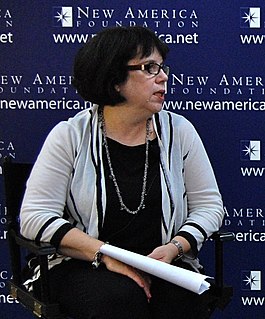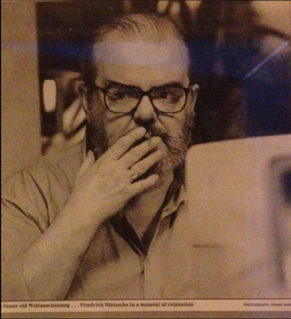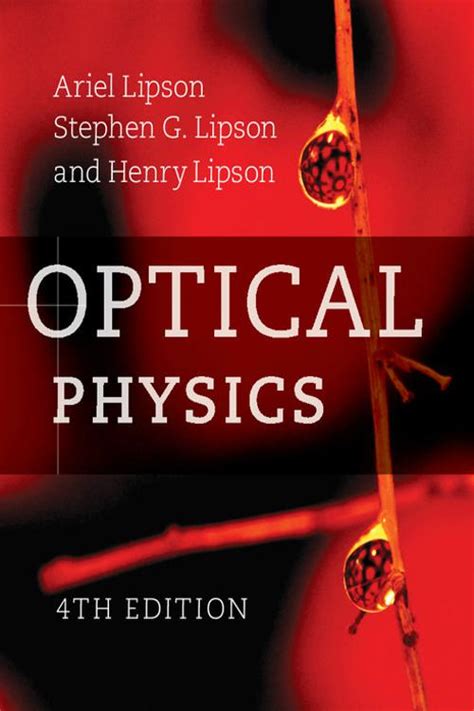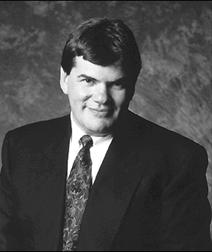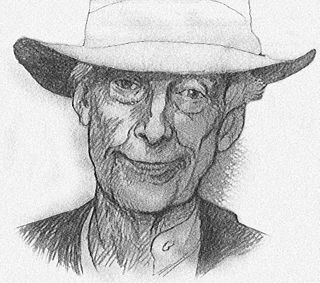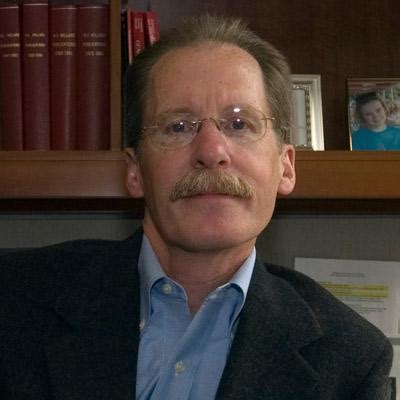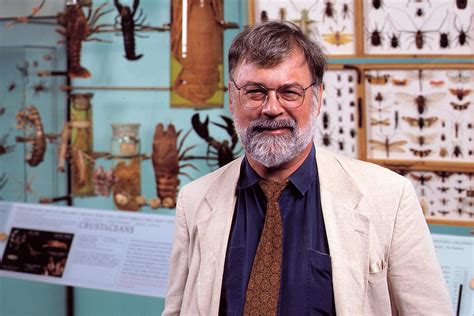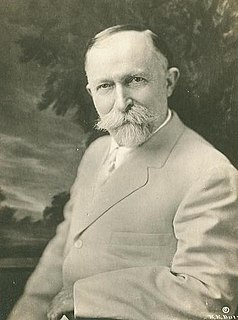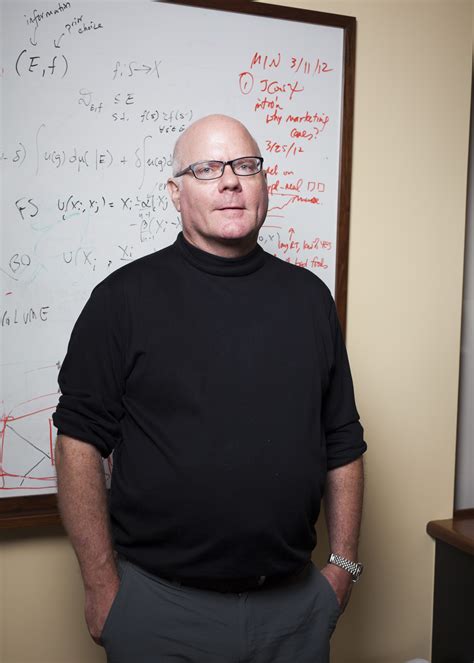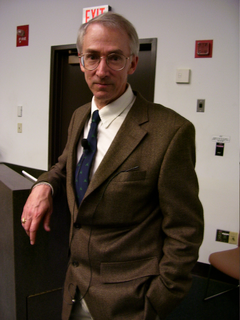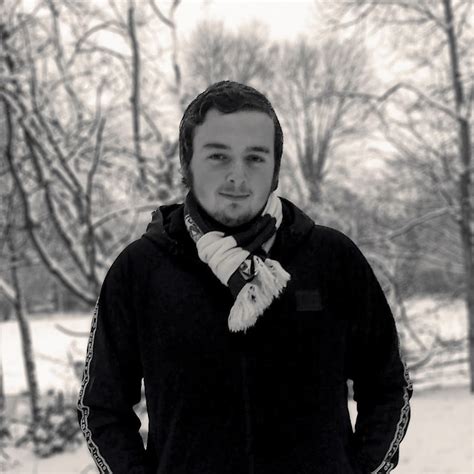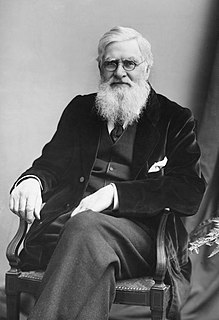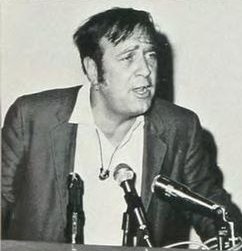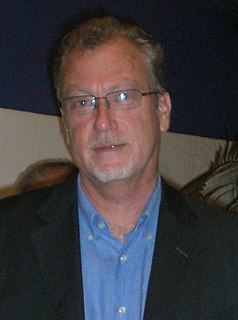Top 348 Darwin Quotes & Sayings - Page 5
Explore popular Darwin quotes.
Last updated on April 20, 2025.
Darwin's greatest achievement was to show that the appearance of purpose, planning, teleology (design), and intentionality in the origin and development of human and animal species was entirely an illusion. The illusion could be explained by evolutionary processes that contained no such purpose at all. But the spread of ideas through imitation required the whole apparatus of human consciousness and intentionality
Our own existence once presented the greatest of all mysteries, but ... it is a mystery no longer because it is solved. Darwin and Wallace solved it ... I was surprised that so many people seemed not only unaware of the elegant and beautiful solution to this deepest of problems but, incredibly, in many cases actually unaware that there was a problem in the first place!
The publication in 1859 of the Origin of Species by Charles Darwin made a marked epoch in my own mental development, as it did in that of human thought generally. Its effect was to demolish a multitude of dogmatic barriers by a single stroke, and to arouse a spirit of rebellion against all ancient authorities whose positive and unauthenticated statements were contradicted by modern science.
Species do not grow more perfect: the weaker dominate the strong, again and again- the reason being that they are the great majority, and they are also cleverer. Darwin forgot the mind (-that is English!): the weak possess more mind. ... To acquire mind, one must need mind-one loses it when one no longer needs it.
Beyond the Einsteins and Darwins, most scientists don't have chroniclers. Einstein and Darwin were geniuses - that helps. Many scientists do amazing stuff, but it just disappears into footnotes and dusty medical journals. If I were masochistic enough, I could spend the rest of my life rescuing scientists. Most of them aren't natural self-promoters.
The sense that the meaning of the universe had evaporated was what seemed to escape those who welcomed Darwin as a benefactor of mankind. Nietzsche considered that evolution presented a correct picture of the world, but that it was a disastrous picture. His philosophy was an attempt to produce a new world-picture which took Darwinism into account but was not nullified by it.
The early 20th Century was probably the high tide of global white supremacy - I'm going to call it that because that's how people thought of it - and to be specific, Anglo-Saxon supremacy: The idea that white Anglo-Saxon Protestants were at the top of the world, representing the highest achievement possible for all of humanity, with Darwin's theories being used to prop up this belief.
Natural selection, the blind, unconscious, automatic process which Darwin discovered, and which we now know is the explanation forthe existence and apparently purposeful form of all life, has no purpose in mind. It has no mind and no mind's eye. It does not plan for the future. It has no vision, no foresight, no sight at all. If it can be said to play the role of the watchmaker in nature, it is the blind watchmaker.
You could give Aristotle a tutorial. And you could thrill him to the core of his being. Aristotle was an encyclopedic polymath, an all time intellect. Yet not only can you know more than him about the world, you also can have a deeper understanding of how everything works. Such is the privilege of living after Newton, Darwin, Einstein, Planck, Watson, Crick and their colleagues.
Darwin theorized that mankind (both male and female) evolved alongside each other over millions of years, both reproducing after their own kind before the ability to physically have sex evolved. They did this through "asexuality" ("without sexual desire or activity or lacking any apparent sex or sex organs"). Each of them split in half.
A taxonomy of abilities, like a taxonomy anywhere else in science, is apt to strike a certain type of impatient student as a gratuitous orgy of pedantry. Doubtless, compulsions to intellectual tidiness express themselves prematurely at times, and excessively at others, but a good descriptive taxonomy, as Darwin found in developing his theory, and as Newton found in the work of Kepler, is the mother of laws and theories.
I have always been slightly suspicious of the theory of evolution because of its ability to account for any property of living beings (the long neck of the giraffe, for example). I have therefore tried to see whether biological discoveries over the last thirty years or so fit in with Darwin's theory. I do not think that they do. To my mind, the theory does not stand up at all.
It takes a long time before we really get to grips with this [Darwin's 'On the Origin of Species'] and begin to understand it, because not only does it seem incredible and thoroughly demeaning to us, but it's yet another shock to our system to discover that not only are we not the centre of the Universe and we're not made by anything, but we started out as some kind of slime and got to where we are via being a monkey. It just doesn't read well.
Quantitative work shows clearly that natural selection is a reality, and that, among other things, it selects Mendelian genes, which are known to be distributed at random through wild populations, and to follow the laws of chance in their distribution to offspring. In other words, they are an agency producing variation of the kind which Darwin postulated as the raw material on which selection acts.
If I were to give a prize for the single best idea anybody ever had, I'd give it to Darwin for the idea of natural selection - ahead of Newton, ahead of Einstein - because his idea unites the two most disparate features of our universe: the world of purposeless, meaningless matter and motion, particles jostling on the one side, and the world of meaning and purpose, design on the other.
I wanted to be a scientist. My undergraduate degree is in biology, and I really did think I might go off and be some kind of a lady Darwin someplace. It turned out that I'm really awful at science and that I have no gift for actually doing science myself. But I'm very interested in others who practice science and in the stories of science.
Just as Darwin discovered the law of evolution in organic nature, so Marx discovered the law of evolution in human history; he discovered the simple fact, hitherto concealed by an overgrowth of idealogy [sic], that mankind must first of all eat and drink, have shelter and clothing, before it can pursue politics, science, religion, art etc.
Mr. Darwin's hypothesis is not, so far as I am aware, inconsistent with any known biological fact; on the contrary, if admitted, the facts of Development, of Comparative Anatomy, of Geographical Distribution, and of Palaeontology, become connected together, and exhibit a meaning such as they never possessed before; and I, for one, am fully convinced that if not precisely true, that hypothesis is as near an approximation to the truth as, for example, the Copernican hypothesis was to the true theory of the planetary motions.
Humor is everything. Everything. Usually the negatives turned out to be the most positive for me. In the music industry, any other artist would have looked at the situation I was in and thought, "Oh man, this is not for me." I looked at it more like Darwin exploring the Galápagos Islands. You know - survival of the fittest.
The key word is flexibility, the ability to adapt constantly. Darwin said it clearly. People thought that he mainly talked about survival of the fittest. What he said was that the species that survive are usually not the smartest or the strongest, but the ones most responsive to change. So being attentive to customers and potential partners is my best advice--after, of course, perseverance and patience.
Well, it's an ancestral tribe. These were immigrants from north of Germany who came here about the time of the Civil War, but anyway, these people called themselves free thinkers. They were impressed, incidentally, by Darwin. They're called Humanists now; people who aren't so sure that the Bible is the Word of God.
You know, Darwin said through natural selection things go gradually, and he was talking about pigeon's evolution or horses evolving, getting faster. But in fact if you look at evolution on a bigger scale, cosmic evolution and you look at culture evolution you see it jumps, it goes through phase changes, and that's very exciting.
Evolution lies at the heart of biology. It is seamlessly and continuously linked to health research to better understand such conditions as AIDS or bird flu or Parkinson's or cancer or heart disease. Every biomedical experiment, every tiny advance, every major breakthrough ultimately connects to the principles first postulated by Darwin.
It was Darwin's chief contribution, not only to Biology but to the whole of natural science, to have brought to light a process by which contingencies a priori improbable, are given, in the process of time, an increasing probability, until it is their non-occurrence rather than their occurrence which becomes highly improbable.
If it is true that an influx of doubt and uncertainty actually marks periods of healthy growth in a science, then evolutionary biology is flourishing today as it seldom has flourished in the past. For biologists collectively are less agreed upon the details of evolutionary mechanics than they were a scant decade ago. Superficially, it seems as if we know less about evolution than we did in 1959, the centennial year of Darwin's on the Origin of Species.
It {Darwin's theory of evolution] was a concept of such stunning simplicity, but it gave rise, naturally, to all of the infinite and baffling complexity of life. The awe it inspired in me made the awe that people talk about in respect of religious experience seem, frankly, silly beside it. I'd take the awe of understanding over the awe of ignorance any day.
The likelihood of the formation of life from inanimate matter is 1 to a number with 40,000 noughts after it (1040,000).... It is big enough to bury Darwin and the whole theory of evolution. There was no primeval soup, neither on this planet nor any other, and if the beginnings of life were not random, they must therefore have been the product of purposeful intelligence.
I was brought up to understand Darwin's theory of evolution. I spent hours and hours in the Natural History Museum in London looking at the descriptions of how different kinds of animals had evolved, looking at the sequence of fossil bones looking gradually more and more and more and more like the modern fossil.
Adam Smith's uncritically enthusiastic modern disciples portray his invisible hand theory as saying that market forces reliably harness selfish individuals to serve the common good. That's often true, but as Darwin recognized clearly, many traits that serve the interests of individual animals make life more difficult for larger groups.
For example, both humans and chimps have a broken copy of a gene that in other mammals helps make vitamin C. ... It's hard to imagine how there could be stronger evidence for common ancestry of chimps and humans. ... Despite some remaining puzzles, there's no reason to doubt that Darwin had this point right, that all creatures on earth are biological relatives.
My share of the work of the world may be limited, but the fact that it is work makes it precious. Darwin could work only half an hour at a time; but in many diligent half-hours he laid anew the foundations of philosophy. Green, the historian, tells us that the world is moved not only by the mighty shoves of the heroes, but also by the aggregate of the tiny pushes of each honest worker.
Even Johannes Kepler, Isaac Newton, Charles Darwin, Gregor Mendel, and Albert Einstein made serious mistakes. But the scientific enterprise arranges things so that teamwork prevails: What one of us, even the most brilliant among us, misses, another of us, even someone much less celebrated and capable, may detect and rectify.
It is ironic that the scientific facts throw Darwin out, but leave William Paley, a figure of fun to the scientific world for more than a century, still in the tournament with a chance of being the ultimate winner... Indeed, such a theory is so obvious that one wonders why it is not widely accepted as being self-evident. The reasons are psychological rather than scientific.
We have to start at ground zero and ask what it means to have a real connection with God and what it means to pray. We have to recast our whole understanding of God. We live on the other side of Copernicus, Kepler, Galileo, Isaac Newton, Charles Darwin, Sigmund Freud, Albert Einstein, Steven Hawking, a whole group of people who have recast the way we think about reality.
Up until the middle of the nineteenth century, men of science were all believers. Most of the great early English naturalists were also ministers; they were the only ones who had education and leisure for such pursuits. Darwin himself almost became a minister. God's power was always thought to be most easily and obviously revealed in the majestic works of nature.
The love of experiment was very strong in him [Charles Darwin], and I can remember the way he would say, "I shan't be easy till I have tried it," as if an outside force were driving him. He enjoyed experimenting much more than work which only entailed reasoning, and when he was engaged on one of his books which required argument and the marshalling of facts, he felt experimental work to be a rest or holiday.
Opponents say natural selection is not a theory supported by observation or experiment; that it is not based on fact; and that it cannot be proved. Well, no, you cannot prove the theory to people who won't believe in it any more than you can prove that the Battle of Hastings took place in 1066. However, we know the battle happened then, just as we know the course of evolution on earth unambiguously shows that Darwin was right.
Charles Darwin and I and you broke off from the family tree from chimpanzees about five million years ago. They're still our closest genetic kin. We share 98.8 percent of the genes. We share more genes with them than zebras do with horses. And we're also their closest cousin. They have more genetic relation to us than to gorillas.
Medals are great encouragement to young men and lead them to feel their work is of value, I remember how keenly I felt this when in the 1890s. I received the Darwin Medal and the Huxley Medal. When one is old, one wants no encouragement and one goes on with one's work to the extent of one's power, because it has become habitual.
It's a flaw in our argument, for sure. By any reading of evolutionary theory, creationists ought to have died out ages ago. They serve no function in the planet's ecosystem, and no other species has survived so long while in such fundamental disagreement with observable reality. If I wasn't such an ardent believer in secular materialism, I'd wager this is really troubling Darwin in the afterlife.
The great mathematician fully, almost ruthlessly, exploits the domain of permissible reasoning and skirts the impermissible. That his recklessness does not lead him into a morass of contradictions is a miracle in itself: certainly it is hard to believe that our reasoning power was brought, by Darwin's process of natural selection, to the perfection which it seems to possess.
One reason that a truth and reconciliation process is needed for group selection is to return to the simplicity of the original problem and Darwin’s solution. As Ed Wilson and I put it in our recent review article titled “Rethinking the Theoretical Foundation of Sociobiology“: Selfishness beats altruism within groups. Altruistic groups beat selfish groups. Everything else is commentary.
In a very real sense, therefore, advocacy of the doctrine of continuity [i.e evolutionism] has always necessitated on retreat from pure empiricism [i.e., logic an observation], and contrary to what is widely assumed by evolutionary biologists today, it has always been the anti-evolutionists [i.e creationist], not the evolutionists, in the scientific community who have struck rigidly to the facts and adhered to a more strictly empirical approach... It was Darwin the evolutionist who was retreating from the facts.
I understood that you would take the Human Race in the concrete, have exploded the absurd notion of Pope's Essay on Man, [Erasmus] Darwin, and all the countless Believers-even (strange to say) among Xtians-of Man's having progressed from an Ouran Outang state-so contrary to all History, to all Religion, nay, to all Possibility-to have affirmed a Fall in some sense.
In one of my latest conversations with Darwin he expressed himself very gloomily on the future of humanity, on the ground that in our modern civilization natural selection had no play, and the fittest did not survive. Those who succeed in the race for wealth are by no means the best or the most intelligent, and it is notorious that our population is more largely renewed in each generation from the lower than from the middle and upper classes.
Evolution as described by Charles Darwin is an scientific theory, abundantly reconfirmed, explaining physical phenomena by physical causes. Intelligent Design is a faith-based initiative in rhetorical argument. Should we teach I.D. in America's public schools? Yes, let's do - not as science, but alongside other spiritual beliefs, such as Islam, Zoroastrianism and the Hindu Idea that Earth rests on Chukwa, the giant turtle.
The Bumpuses were so low down on the evolutionary totem pole that they weren't even included in Darwin's famous family tree. They had inbred and ingrown and finally emerged from the Kentucky hills like some remnant of Attila the Hung's barbarian horde. Flick said that they had webbed feet and only three toes. It might have been true.
Darwin found out that when you took horses up to the high country in the Middle East, they would then grow long hair after a season or two. But when you took them - these long-haired horses - back into the low, hot country, they wouldn't get rid of the long hair, just in case, for about four generations.
Charles Darwin, who had witnessed the
atrocities perpetrated against Argentina’s native
Indians by Juan Manuel de Rosas, had predicted
that “the country will be in the hands of white
Gaucho savages instead of copper-coloured Indians.
The former being a little superior in education,
as they are inferior in every moral virtue.
Do you remember what Darwin says about music? He claims that the power of producing and appreciating it existed among the human race long before the power of speech was arrived at. Perhaps that is why we are so subtly influenced by it. There are vague memories in our souls of those misty centuries when the world was in its childhood.' That's a rather broad idea,' I remarked. One's ideas must be as broad as Nature if they are to interpret Nature,' he answered.
Just as Darwin discovered the law of development of organic nature, so Marx discovered the law of development of human history: the simple fact, hitherto concealed by an overgrowth of ideology, that mankind must first of all eat, drink, have shelter and clothing, before it can pursue politics, science, art, religion, etc.
Order can arise from chaos without anyone or anything directing the process when unstable combinations of atoms perish and others persist. In the 17th century, Descartes applied this insight to cosmology, and long before Darwin presented his more rigorous ideas about variation and selection, people began to speculate more openly about the origins of life and the species in Epicurean terms.





